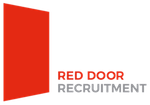How to successfully on-board new staff members, remotely
Speaking to some of our clients, we have found that there can be hesitancy to complete a recruitment process remotely. By adapting your business and making a few extra considerations, you can vastly reduce your risk, secure business critical hires during a challenging time and ultimately safe-guard your business for when we are on the other side of this pandemic!
There are still essential roles to be filled to hopefully mitigate any long-term impact on business growth and the economy.
Successful onboarding begins in the recruitment process
Have clear expectations of what the role will look like during lockdown.
Think about hours/days, day to day tasks, training required and the steps you have already put into place to help employees work from home. Communicate this clearly so candidates are aware of the expectations and accountability throughout the process. You don’t want to get to the end of a process and find out the candidate cannot accommodate the working from home requirements!
Put increased focus on your culture and employer brand to help your candidates understand who you are, and what it will be like when you return to the office.
Get more of the team involved in the interview process
At offer stage, host virtual ‘drinks’ to introduce your potential new starter to the rest of the team and key members of the business. Direct people to your social media to show them the culture. Perhaps you have photos or videos of the office or the social events you’ve organised to share?
You’ve found the perfect candidate and now it’s time for the paperwork!
There are many environmental benefits to being paperless, but lockdown is a great opportunity to review your processes and see how you can use different tools to make the process smoother and reduce your reliance on hardcopies.
GDPR is more relevant than ever when we are working from home, so it’s essential that you have safeguards in place for protecting data that might be sent to you. Make sure that new starter information is being sent in a secure way and bank details are not just freely available on the family computer! Tools like ThreatAware can help you manage team security whilst working from home.
Even better, there are online on boarding platforms like Webonboarding that allow your new starter to fill all of this information in remotely and securely as well as significantly reducing the admin time for you.
Before Day One
Make sure you’ve adjusted your usual onboarding process to account for lockdown.
Are your supply-chains affected for getting the right equipment out to people? Do you need to give IT extra time to get laptops and phones set up?
Do you need to update your staff handbook with your COVID-19 policies?
How will day 1 be different and have you planned for how that time will be spent? That tour around the office showing where the fire exits are and how to use the coffee machine won’t be necessary (but don’t forget to do this when you are back!). Introduce them to the team before they start.
Who are the key people to speak to if they have any questions and who will they be working with for the first few weeks? If possible send out a welcome pack.
Day One
By this point, you’ll know exactly what needs to happen when and with whom. Still be mindful that joining a new business is overwhelming at the best of times. Little things on the first day can make a huge difference! Can you arrange for a group lunch over video? It’s great to meet friendly faces from the office that might not be in your immediate team, but you’ll sharing coffees with once in the office!
Week One
Make sure you’ve ticked off all your usual onboarding and training processes. If it’s your first time onboarding remotely, also make sure you take note of any unanticipated challenges for next time!
During these times, there needs to be a bigger focus than ever on embedding new starters into your culture. These people are leaving jobs with familiar faces to come to somewhere totally new, during a time of extreme social isolation.
Set up informal social buddies and encourage your employees to get new starters involved with group chats.
Socials
Keep as much of your usual onboarding activities the same as possible, and just adapt to the times. We’ve been having Thursday pub quizzes and Friday drinks as normal and it’s a great way to make any new starter feel part of the family!
Remember a great onboarding process can reduce the amount of time someone takes to get up and running (great for the costs), increase engagement and commitment (essential for every business to weather this storm) and increase wellbeing and reduce stress (something we all need a little of right now).


